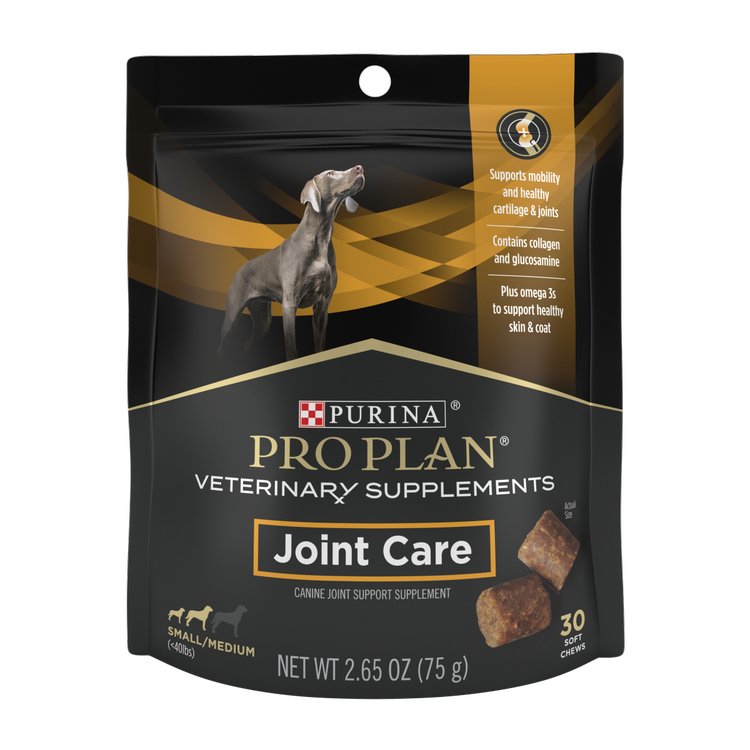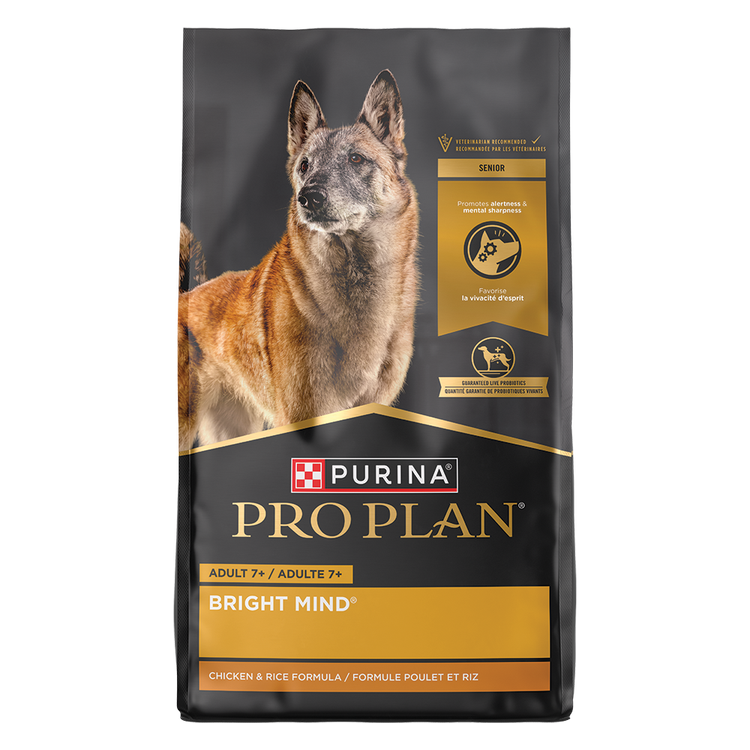Should You Give Your Senior Dog Supplements?


Like with humans, it’s important to support your dog’s health as they age. You can help them stay physically and mentally fit through exercise and complete and balanced senior dog food.
Additionally, some pet owners use senior dog supplements to minimize the impact of aging on their pet’s body.
Whether you’re looking for senior dog joint-pain relief or are concerned about cognitive decline, you can find different supplements that address the needs of aging canines. But are they right for your pet?
Read on to learn more about senior dog supplements and how they may help promote joint, heart and brain health.
What Are Supplements for Senior Dogs?
Supplements for senior dogs are often available as drops, chews and tablets that can be consumed orally. How often you give them depends on factors like dosage and your pet’s weight.
Senior dog supplements contain ingredients that may provide relief for problems common to aging. For example, a heart health supplement may have taurine for dogs with heart disease.
Pet owners might give their senior dog supplements to make up for nutritional gaps in their diet, or if they want to increase levels of certain vitamins, minerals and healthy bacteria (i.e., probiotics).
If you’re wondering, Should I give my senior dog supplements?, talk to your veterinarian. They can advise you based on your pet’s individual needs.
Signs That Your Dog is Getting Old
Dogs are considered senior around the age of seven, although this can vary based on breed size. It’s natural for your pet’s behavior to change over time. If they have a little less energy compared to a few years ago, this isn’t necessarily cause for alarm.
That said, notify your veterinarian if you see developments that concern you. Depending on the issue, they may recommend a senior dog supplement, among other things.
Common signs of aging in dogs include:
- Loss of mobility
- Incontinence
- Disorientation or confusion
- Changes to sleep patterns
- Lack of appetite
- Pacing
Reasons to Give Your Pet Senior Dog Supplements
Again, if you’re looking for the best supplements for senior dogs, talk to your veterinarian first. They can make a recommendation based on what’s appropriate for your pet.
Here are some typical health conditions that may benefit from supplements.
Joint Pain
As dogs age, their joints can start to ache due to a depletion of cartilage throughout their life (cartilage contributes to joint function and mobility). If your pet has trouble moving, lying down, or favors certain legs when they walk, they may be experiencing joint pain.
Senior-dog joint supplements promote joint health and can potentially relieve pain and improve mobility in your pet. They may also help with conditions like hip dysplasia and osteoarthritis. For the latter, joint supplements may be used early as well as throughout the course of the disease.
Cognitive Health
Cognitive decline in senior dogs occurs when the brain degenerates and abnormal proteins (amyloid plaque) accumulate on the front part of the brain, or the frontal lobe. Symptoms of dog dementia include confusion, reduced social interaction, and forgetting behavior and house-training commands, among other things.
While there’s no cure for dog dementia or cognitive decline, senior dog brain-health supplements may help support cognitive function in your aging pet.
Heart Disease
If you’re concerned about heart disease in senior dogs, talk to your veterinarian. They can recommend a treatment plan for your pet’s condition, which might include heart-health supplements as a way to improve vascular function.
Immune Strength
Aging dogs can be more vulnerable to illness than younger canines. Senior dog immunity supplements aim to provide vitamins and minerals that strengthen your pet’s natural defenses against viruses and infection.
How to Choose Senior Dog Joint Supplements
When it comes to choosing the best joint supplement for senior dogs, your veterinarian can help you narrow down your options.
Purina Pro Plan Canine Joint Support Supplement uses ingredients commonly associated with joint health, such as:
- Collagen - an important substance found in your dog’s connective tissue that can deteriorate as your pet ages
- Glucosamine - one of the building blocks of cartilage, which supports joint health
- Chondroitin - can reduce deterioration of cartilage and contribute to its growth
Cognitive Supplements for Senior Dogs
If your pet has senior dog cognitive dysfunction syndrome (CDS), your veterinarian may recommend brain-health supplements.
Supplements for Heart Disease in Senior Dogs
Taurine can be beneficial for dogs with heart disease (taurine is an amino acid that helps regulate blood flow throughout your pet’s body). So, heart-health supplements that contain the ingredient may be a good choice if your senior pet has cardiovascular problems.
Senior Dog Immune Boosters
If you want to support your pet’s overall immune health, you might consider immunity supplements with important vitamins for senior dogs. Antioxidants and vitamins A and E are associated with immunity health.
Additionally, while probiotics are not vitamins, a probiotic supplement can help protect your dog’s gastrointestinal tract, which contains the majority of their immune system.
Natural Supplements for Senior Dogs
There isn’t a standard, legal definition of the word “natural” when it comes to pet supplements. Talk to your veterinarian if you’re interested in natural supplements for senior dogs. They can help identify supplements that contain the kind of ingredients you have in mind.
Whether it’s joint pain, heart disease or brain health, many senior dogs experience age-related challenges. Often, complete and balanced dog food formulated for their age provides the nutrition they need, but in some cases, supplements supply key vitamins, minerals and probiotics to optimize their diet.
Remember, contact your veterinarian before giving your dog any kind of supplement. They can help you choose the best senior dog supplement for your pet, depending on their individual needs.
For more expert tips on caring for your aging canine companion, explore our other senior dog health articles.

Reward Yourself with myPurina
Earn and redeem rewards for Purina products with the myPurina app.





